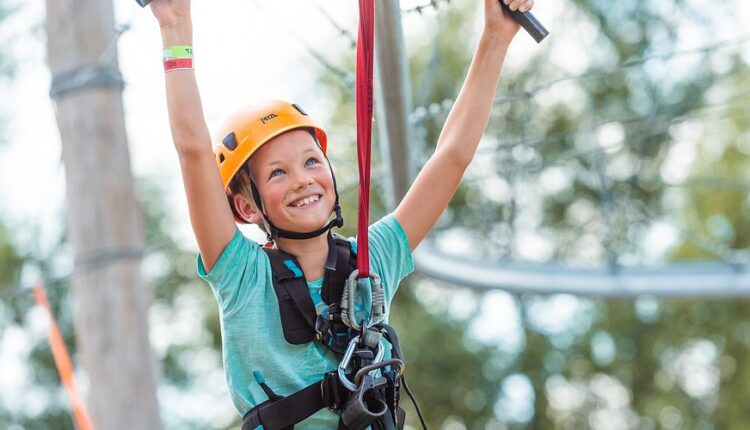The Timeless Call of Adventure: Embracing the Unknown with Purpose and Passion
Introduction: Beyond Boundaries, Into Possibility
Adventure, in its purest form, is a declaration of curiosity—a deliberate step beyond what is familiar, predictable, or safe. It is a pursuit not limited by geography or age but fueled by an inner spark to explore, learn, and transform. Whether climbing icy peaks, sailing uncharted waters, or even changing careers, adventure reveals itself wherever we answer life’s call to stretch beyond comfort. In today’s world, where daily routines and digital convenience often overshadow spontaneity, the concept of adventure feels more vital—and perhaps more transformative—than ever.
The Essence of Adventure: More Than Thrill
At first glance, the word “adventure” may conjure images of rugged explorers, adrenaline sports, or daring expeditions. Yet, beneath the excitement lies something deeper: an attitude towards life, rooted in openness and courage.
-
Curiosity as Compass: True adventure starts with questions—What’s beyond that hill? How does this culture celebrate? Could I live differently?
-
Embrace of Uncertainty: Rather than resisting the unknown, adventurers welcome it, finding joy in paths not yet walked.
-
Growth Through Challenge: Whether physical, emotional, or intellectual, adventure often demands resilience, rewarding us with newfound strength and insight.
This essence transforms adventure from an activity into a philosophy—one that values the journey as much as the destination.
The Many Faces of Adventure: From Remote Peaks to Everyday Life
Adventure is wonderfully varied, shaped as much by context as by spirit.
-
Expeditions in Nature: Trekking the Andes, kayaking fjords, or traversing the Sahara remind us of our smallness and the earth’s vast wonder.
-
Cultural Immersion: Living with a local family in Bhutan, studying ancient crafts in Morocco, or attending a festival in rural Japan can be equally transformative.
-
Urban Exploration: Wandering through hidden alleyways, discovering underground art scenes, or sampling street food in a new city reveals layers of human creativity.
-
Personal Frontiers: Starting a business, moving abroad, or learning a new language—these quieter adventures challenge identity and deepen self-awareness.
The beauty of adventure is that it meets us wherever we stand; it is less about distance traveled than about perspective gained.
Why We Seek Adventure: The Deeper Motivation
While thrill and novelty play their part, the human craving for adventure is rooted in something timeless.
-
Connection to Nature: Escaping artificial environments reconnects us with landscapes that shaped human evolution, stirring awe and humility.
-
Quest for Meaning: Adventures often clarify values, sharpen focus, and reveal what truly matters.
-
Shared Stories: Adventures become stories—woven into family histories, friendships, and even our sense of identity.
-
Breaking Routine: Stepping outside daily patterns brings creativity, energy, and renewed appreciation for life.
Adventure, in this sense, is both an escape and a return: an escape from monotony, and a return to the vibrant unpredictability of living.
Preparing for Adventure: Balancing Planning and Spontaneity
Great adventures often dance between careful preparation and a willingness to adapt.
-
Research and Respect: Understanding local customs, geography, and environmental conditions ensures safety and enriches experience.
-
Mindful Packing: Choosing versatile gear—light, durable, and suited to the destination—frees travelers to focus on discovery.
-
Flexibility: Weather shifts, missed connections, or new opportunities often become the most memorable parts of a journey.
-
Emotional Readiness: Recognizing fears and embracing vulnerability open the heart to unexpected connections and insights.
This balance honors both prudence and play—a combination that keeps adventure both safe and exhilarating.
The Changing Landscape of Adventure Travel
Today’s adventurers navigate a world transformed by technology, environmental awareness, and social change.
-
Sustainable Travel: Eco-lodges, carbon offsetting, and responsible trekking reduce impact and foster respect for nature and communities.
-
Digital Tools: GPS apps, translation tools, and online forums make remote areas more accessible—yet risk diluting the rawness of exploration.
-
Inclusive Adventures: Initiatives now welcome travelers of diverse backgrounds, abilities, and ages, broadening who can experience adventure.
-
Slow Travel Movement: A shift from checklist tourism to immersive, longer stays reflects a desire for depth over breadth.
This evolution suggests that modern adventure is less about conquering and more about connecting—both with places and people.
Living Adventurously Every Day
While epic journeys have their place, living adventurously does not require plane tickets or mountaintops.
-
Choose curiosity daily: Take a different route home, try a new cuisine, or strike up a conversation with a stranger.
-
Challenge comfort zones: Learn a new skill, perform on stage, or express a long-held opinion.
-
Cultivate presence: Notice details—a bird’s song, architectural patterns, the fragrance of rain.
-
Prioritize spontaneity: Say “yes” to unexpected invitations, even if they disrupt routine.
Adventure becomes a state of mind—available to anyone willing to see the familiar through fresh eyes.
Conclusion: Answering the Call
Adventure, ultimately, is an invitation—one that life extends each day to those willing to listen. It teaches us to embrace the unpredictable, to trust our resilience, and to discover beauty where it was previously unseen.
In a world often defined by caution and repetition, adventure keeps us alive to possibility. It reminds us that beyond each bend in the road, there may lie not only breathtaking landscapes but also unexplored corners of our own humanity. And in answering its call, we find that the richest reward is rarely the destination—but the person we become along the way.


Comments are closed.